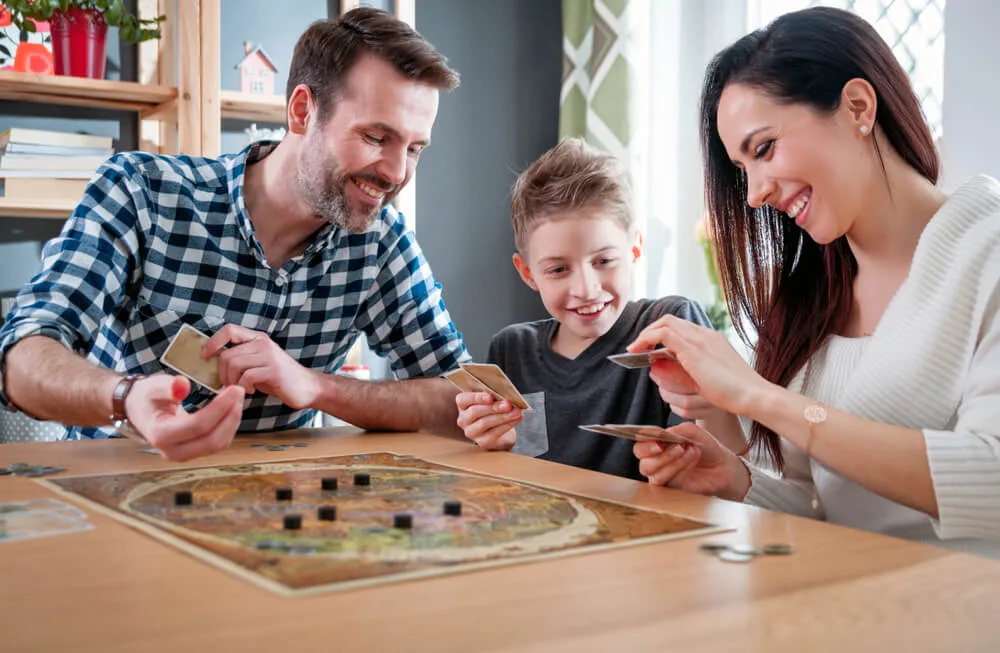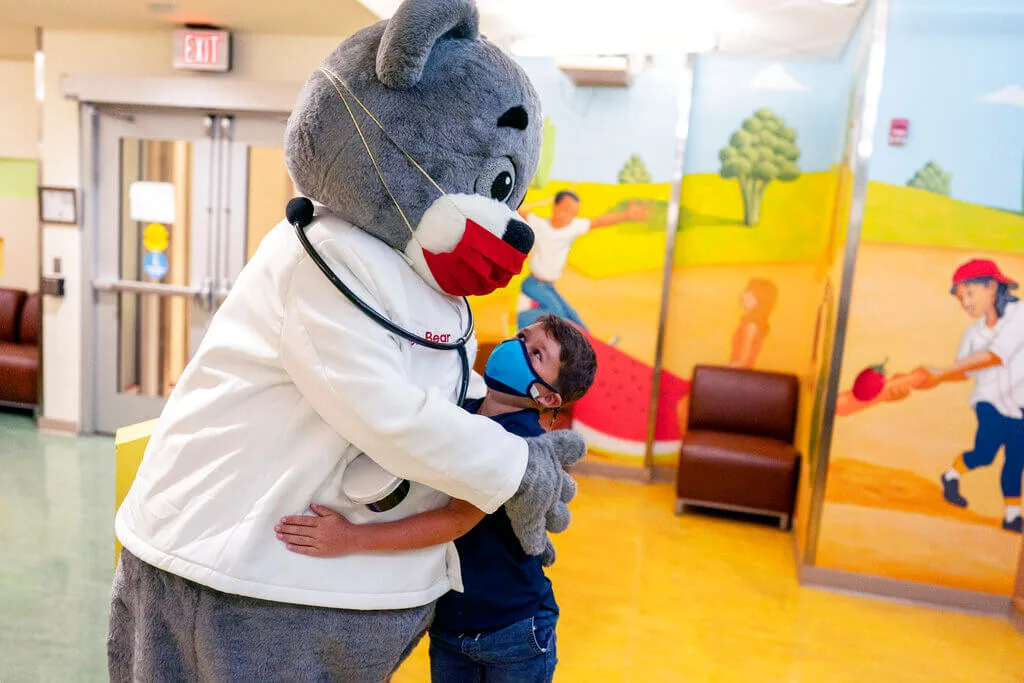
Image via Shutterstock
An expert warns that overexposure to technology is affecting children’s motor, physical, and cognitive development. Help kids develop these important skills with toys that are also fun.
In light of the pandemic, children are using electronic equipment for longer periods of time, be it by attending virtual classes or playing games in their free time.
Mental health experts have warned about the effects the prolonged use of these devices may have on children and teenagers.
RELATED: Kids Are Locked to Their Computers and Phones During COVID. That Is Giving Them Depression and Insomnia
“We are seeing more distracted children with memory problems,” Jessica Sánchez, psychologist and learning facilitator, told The Americano. “They are less creative; they do not know how to solve problems. Some are depressed and feel anxious.”
The expert said holidays are an excellent opportunity to introduce children to toys and games that promote skill development, exercise, and using the imagination.
“Playing is the child’s job,” Sánchez said. “That’s how they learn. Sometimes parents say, ‘They’re playing too much.’ But in all truth, children are learning and exploring through play.”
The educator recommended that parents play with their children to address their behavioral issues and foment good relationships and memories.
Sánchez said children usually ask for trending toys as presents, and these may likely be video games or other electronics.
“Fun and toys are essential to children’s development, but they must be appropriate to specific ages and personality traits,” Sánchez said. “If a child is withdrawn, one may have to find a toy that will help them get out of that a little bit—not keep them more withdrawn.”
Many traditional toys provide benefits suitable for various stages of development. If children are not familiar with these toys, it is up to parents to introduce them to the child.
The psychologist said board games, jump rope, jacks, and ping-pong are some examples of games kids can play at home and help them in physical, mental, and cognitive ways.
“We have to teach them; we must be role models,” Sánchez said. “We must invite children to participate in these activities. It’s not that we’re going to buy some jacks and just give them to the child. We’re going to play with them, so children can see how much fun they are. If we don’t teach them how to play, they won’t see the fun.”
Many experts in child development agree that the best toys are the toys that do the least. Rather than a toy that requieres batteries, has flashing lights and talks—requiring little input from your child—pick a toy that is open-ended and engages your child’s imagination. “The toys that are too detailed or complicated—too ‘fixed’— can rob a child of an imaginative experience,” Kim John Payne, M.ED. and Lisa M. Ross write in the book “Simplicity Parenting.”
Here are a few examples of open-ended toys:
- Art supplies, such as paints, crayons, jewelry-making kits and other craft materials
- Building toys, including blocks, Magna-Tiles, train tracks, and some STEM toys
- Toys that encourage pretend play, like play kitchens, dolls, dollhouses, and figurines, such as knights
- Sensory toys—especially for toddlers and younger children—such as Kinetic sand and modeling substances like Play-Doh
- Toys that encourage movement, such as a wobble board, a bicycle, or trampoline
- Nature toys, such as a gardening set, an ant farm, a magnifying glass or binoculars
- Musical toys, like a small piano, recorder or guitar
Sánchez, who is also a children’s event organizer, advises parents not to buy expensive gifts due to social pressure.
“Simple, basic toys can make children happy,” Sánchez said. “Imagination is one of the most beautiful cognitive processes a child has. The fact that you can imagine a whole story around a simple cardboard box—these are the kind of moments that are never forgotten.”
RELATED: Latino Students Juggle Remote Learning and Translating for Families During Pandemic
Sánchez clarified that she is not opposed to the use of technology. She well understands this generation has to deal with its use. What she does not approve of is its excessive use.
“If we can reach a balance, it will bring many benefits,” the psychologist said. “Togetherness in the family group is important, sharing beautiful moments. I remember more the games I played with my parents—the walks we took together—than the material things we had. Those beautiful things are what I remember.”
Politics

Teamsters and UPS Reach Tentative Deal to Avoid Strike, 340,000 Workers to Get Raises
The tentative deal represents a huge win for full- and part-time UPS Teamster workers, who would get significant pay raises and better working...



One Republican Senator Is Blocking 265 Military Promotions, Leaving the Marines Without a Confirmed Leader
Sen. Tommy Tuberville's decision means these military officers are not getting the pay raises they’re owed, cannot move their families to wherever...
Local News



Teamsters and UPS Reach Tentative Deal to Avoid Strike, 340,000 Workers to Get Raises
The tentative deal represents a huge win for full- and part-time UPS Teamster workers, who would get significant pay raises and better working...



One Republican Senator Is Blocking 265 Military Promotions, Leaving the Marines Without a Confirmed Leader
Sen. Tommy Tuberville's decision means these military officers are not getting the pay raises they’re owed, cannot move their families to wherever...




